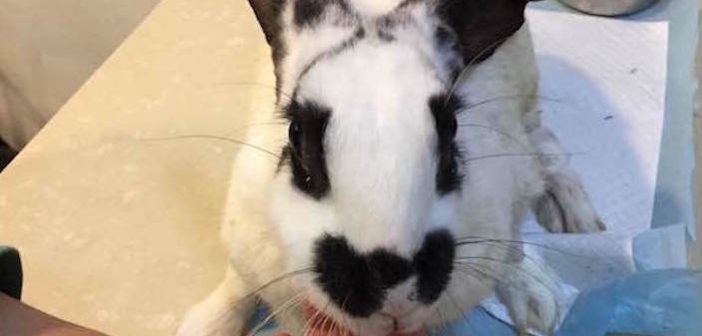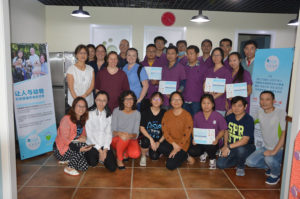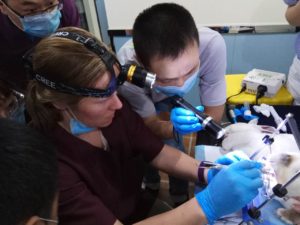Back in 2012, the Year of the Rabbit heralded the start of an ironic welfare issue for pet bunnies in China. While the Chinese began buying the latest must-have pet in a furry frenzy of enthusiasm, both vets and the public needed to understand more about their needs.
Since 2012, the pet rabbit population in China has exploded, both in response to demand and being a cheap pet, as well as a result of ignorance of their fast breeding. Many rabbits are suffering ill health or die as a result of inappropriate diet, handling and general husbandry, and overpopulation and abandonment are now very common problems.
This needless suffering is not due to cruelty as such, but a simple lack of understanding, which is now being resolved through education. While cats and dogs are more commonly kept as companion animals in China, the needs and behaviors of the sociable, vegetarian bunny are misunderstood by many pet owners and the vets who care for them.
 That’s why ACTAsia’s veterinary Train the Trainer program stepped in to teach vets in China what they need to know to help pet bunnies stay healthy and happy.
That’s why ACTAsia’s veterinary Train the Trainer program stepped in to teach vets in China what they need to know to help pet bunnies stay healthy and happy.
ACTAsia and Vets For Compassion (VFC) worked with local partner CSAMA when they visited China in the autumn for the regular Train the Trainer programme, which focuses on cats and dogs. But this time, Dr. Narelle Walters of the Melbourne Rabbit Clinic was invited to provide some additional veterinary training.
 Veterinarians in Beijing and Zhongshan welcomed the specialist theoretical and practical training to expand their knowledge on rabbits as a species, which included Diet & Dentition, Husbandry & Handling, Anaesthesia and Surgery. Dr. Walters also gave a presentation at the Veterinary University in Hangzhou for the student vets and following the trip, stated that ‘Volunteering to update Chinese veterinarian’s on the care and treatment of rabbits has been a very rewarding experience. China is a beautiful country and the enthusiasm of the veterinarians attending the ActAsia conference was inspiring.’
Veterinarians in Beijing and Zhongshan welcomed the specialist theoretical and practical training to expand their knowledge on rabbits as a species, which included Diet & Dentition, Husbandry & Handling, Anaesthesia and Surgery. Dr. Walters also gave a presentation at the Veterinary University in Hangzhou for the student vets and following the trip, stated that ‘Volunteering to update Chinese veterinarian’s on the care and treatment of rabbits has been a very rewarding experience. China is a beautiful country and the enthusiasm of the veterinarians attending the ActAsia conference was inspiring.’
Feedback from participants has been tremendously positive. Many didn’t even know that a rabbit’s diet should include plenty of hay, and that without it there are likely to be many welfare issues, as well as medical challenges for the vets!
Since then, our social media WeChat group of vets in China has been exchanging information and advice with the Australia vets and between themselves, creating a strong animal welfare-minded Vet Community. One of the vets mentioned ‘I realised how unskilled my rabbit treatment was before. I have been using more care, always advising the owners to give their bunnies more hay and I now use big towels to hold them which is very helpful. The most amazing thing is that I learned how to treat them, step by step.’
By supporting us now, you are helping us visit China again and reach hundreds more vets who are continuously working to reduce the suffering of animals! Find us on social media and www.actasia.org











